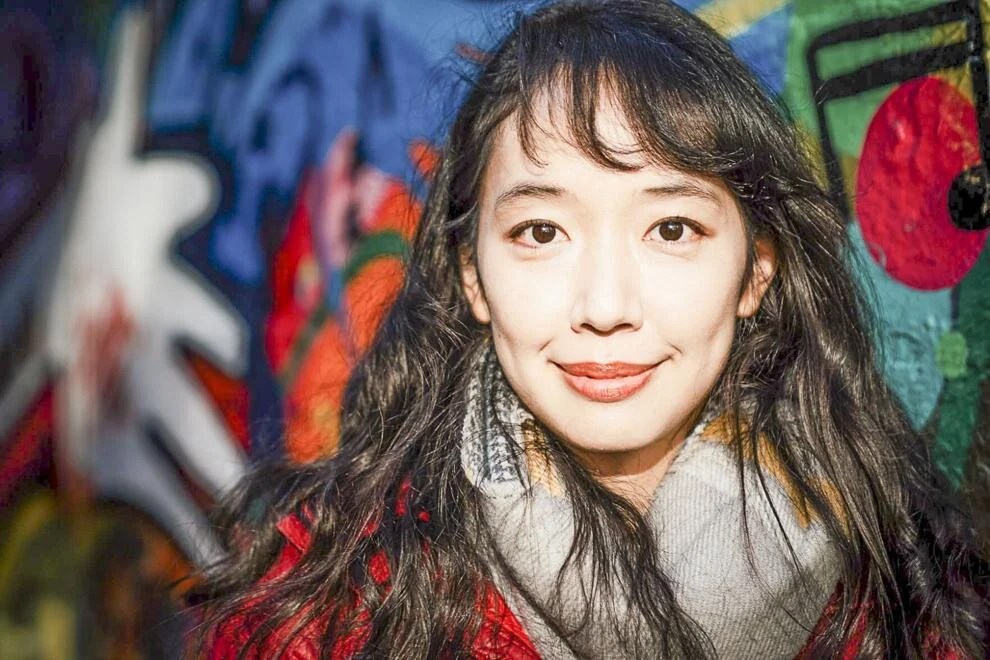Dr. Christine Kitano, Tompkins County’s Poet Laureate
By Laura Ilioaei
Poetry is one of the oldest forms of literature. But ironically, its popularity (and therefore, its accessibility) has diminished over time. Even some of the most avid self-proclaimed bookworms scratch their heads in embarrassment when they admit that they put the genre on the backburner in favor of prose. This makes the existence of a poet laureate imperative.
A poet laureate is a poet who has significantly devoted themselves to their craft and been recognized by a public institution in a given area. Tompkins County has designated the title to Dr. Christine Kitano, a professor for Ithaca College’s Writing Department. She teaches classes on literary analysis, creative writing, and Asian American literature.
Admittedly, poetry was not what she initially gravitated towards. “I started writing poetry when I was in college. I thought that I was a fiction writer, and so I was writing stories. But then I had a really influential professor who told me that I should try writing poetry, and I did. And I’ve been writing poetry ever since then,” she said. Dr. Kitano has written two volumes of poetry: Birds of Paradise and Sky Country. They are autobiographical accounts, reflective reads that give readers insight into how cultural identity weaves through a family tree, from roots to branches, regardless of where the branches stretch.
Officially, the Tompkins County poet laureate doesn’t have specific outlined duties. However, Dr. Kitano hopes to integrate more poetry into the public. “What I’m hoping to do is start some sort of community poetry-reading club… I hope to just create more opportunities for people who don’t have access to the classroom or other ways of learning about poetry. I just want to make spaces available to people who might be interested in learning more about poetry,” she said.
Since most students are taught a homogenous curriculum in public schools, the history they’re taught is full of gaps and they often don’t understand the context behind the art of the time, much less how it connects to the present. Relatability is a key component of understanding literature. Poetry is often political, reflective of the ideologies that exist at the time it’s written. People underestimate what poetry is capable of because when they’re only exposed to the more archaic works, a void emerges: an absence of relatability. “People don’t get to read a lot of poetry. The poetry that they read in high school is usually older and it rhymes in a more formal way, so people have an idea of what poetry is. And for a lot of people, they don’t really feel connected to that form of poetry, so they tend to assume that they don’t have a connection to any kind of poetry.” After all, part of the reason poetry is underrated is due to a lack of exposure of its more modern forms.
Dr. Kitano is currently working on a third volume of poetry. Ultimately, she hopes that her writing continues to evolve: “I assume [poetry] is like learning how to play a sport, where when you’re first learning you learn how to do some basic movements and I felt like I was working on that in my first book. My second book, I got more comfortable [and] I was able to pull off some more complicated movements. Now, in my third book, I’m really looking to expand. I feel like I have a grasp of the basic skills that it takes to put a book together, but now I am trying to experiment with those skills a little bit more, just to find more sophistication in my work.”
But naturally, the path to any fruitful endeavor is rarely ever linear. The coronavirus pandemic resulted in a disturbance in Dr. Kitano’s creative process. “I felt like I had a sense of arriving. I felt like I was an adult, I felt like I understood my life a little bit. And I had written this poem that was about sitting in my office in Smiddy and looking outside. I think one of the lines was ‘All my mistakes have led me to this.’ Everything that didn’t work out in the past, everything that I had wanted that I didn’t get, still led me to this life that I’m really thankful for, that I’m happy with. And then, right after that, everything changed!” While the core belief that her decisions have guided her to her present circumstances remains, the pandemic has resulted in a more nuanced version of this belief, and it is these nuances that she continues to grapple with. However, tension is one of the ripest circumstances in which poetic gems are birthed. The future only asks what diamond Dr. Kitano will form under this pressure.

